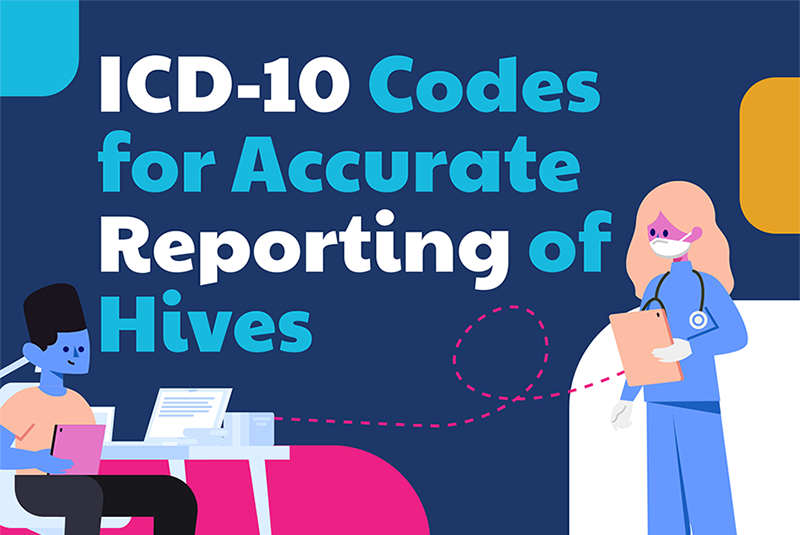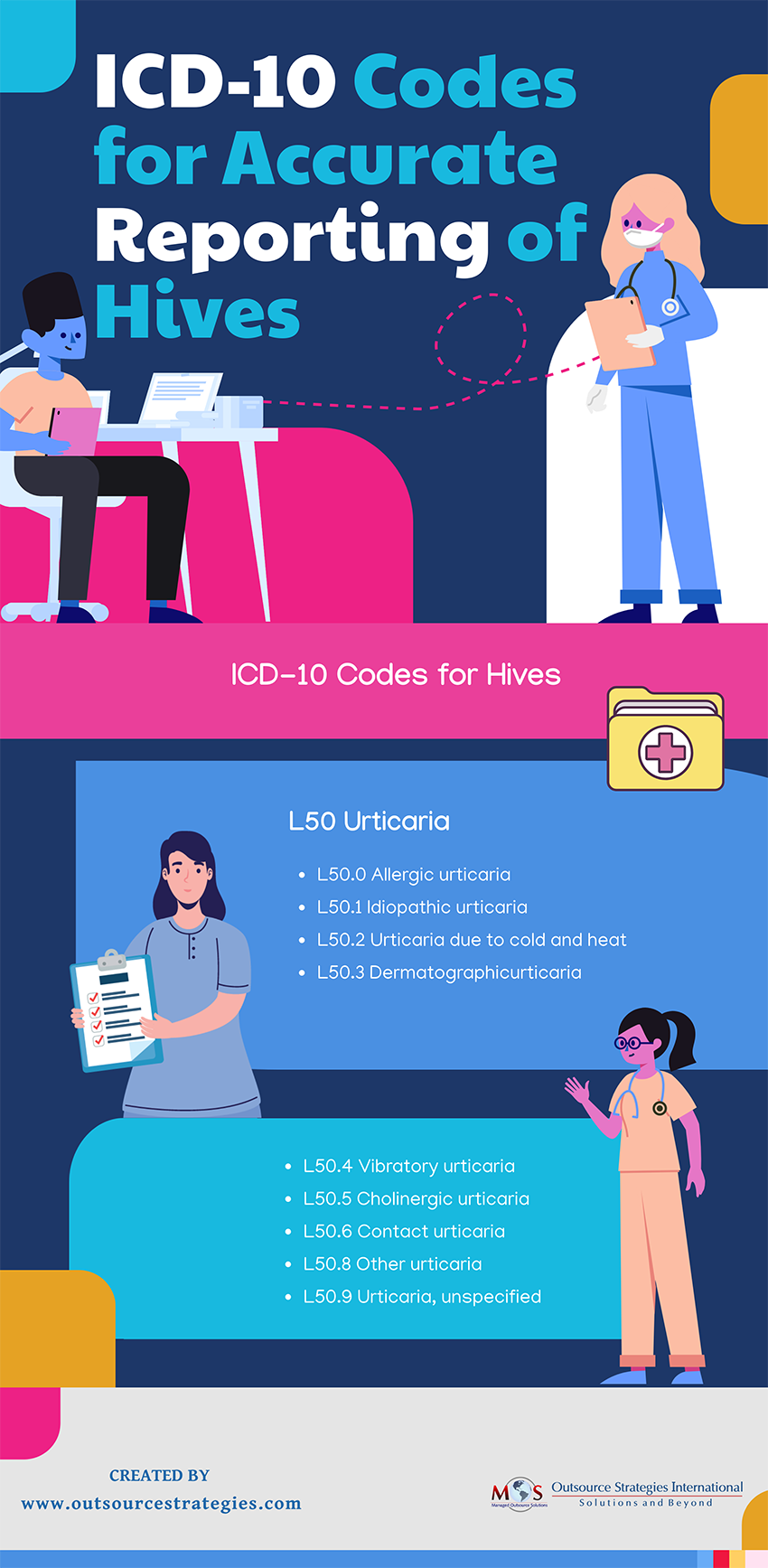Hives, also known as urticaria, are a serious skin reaction characterized by itchy, raised welts that can be red, pink, or flesh-colored. They can occur as a result of an allergic reaction to medication, food, or environmental irritants. Accurate documentation and assignment of the correct ICD-10 codes are crucial when reporting hives diagnosis and treatment on medical claims. Dermatologists treating patients with hives can rely on professional medical billing companies to report the condition on claims using the appropriate ICD-10 codes.
A mild case of hives typically resolves within a few days, and if there is any discomfort, antihistamines may be prescribed. It is advisable to consult a dermatologist if the hives persist for more than a few day, cover a significant portion of the body, or caused by an allergy. Dermatologists are able to diagnose hives by examining the patient’s skin. Since hives can have various causes, the physician will inquire about the patient’s medical history to determine the underlying cause. Understanding the trigger for hives can assist the patient in avoiding it, thus preventing future occurrences.
During the appointment, the medical history of the patient will be assessed, and it is essential for the patient to disclose any recent medical treatments, such as radiation therapy or a blood transfusion. Depending on the situation, the dermatologist may order medical tests like allergy tests (either on the skin or through blood tests), blood work, or a skin biopsy as part of the diagnostic process. Treatment approaches may include taking antihistamines, avoiding triggers, wearing comfortable clothing, protecting the skin from the sun, and using anti-itch creams or lotions.
Medical billing and coding for hives can be complex, as there are several codes associated with the condition. By outsourcing these tasks to a dermatology medical billing company that provides the services of AAPC-certified coding specialists, healthcare practices can ensure correct and timely claim submission for optimal reimbursement.
Check out the infographic below
A mild case of hives will usually resolve in a few days, with antihistamine being prescribed for any discomfort. Consulting a dermatologist is recommended if the hives last longer than a few days, cover a large area of the body, or are caused by an allergy.
Dermatologists can diagnose hives by looking at the patient’s skin. Hives have many causes and the physician will ask the patient questions to determine the cause. Knowing why hives occurred may help the patient avoid the cause, which can prevent new hives.
Find out how our dermatology medical coding services can improve your practice revenue.
Hives can be a sign of alpha-gal syndrome, a food allergy that can develop after being bite by the lone star tick. During the appointment, the dermatologist will assess medical history. Patients should mention any recent medical treatments, including radiation therapy or a blood transfusion. Medical tests such as allergy tests (on the skin or blood tests), blood work and skin biopsy may be ordered as part of the diagnoses.






